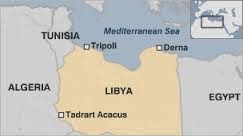President asks the army to work on its strategy to counter attacks by Nigeria’s Boko Haram militant Islamist sect.
In a major address to the rank and file of the Ghana Armed Forces, President John Mahama urged them to work with officers to counter any possible terrorist attack on the country.
Mahama said at Burma Camp in Accra on 27 May that the activities of Boko Haram and other terrorist groups in the sub-region threaten a broad swathe of peoples across West Africa. Two days earlier, he had returned from South Africa where he met Nigeria's President Goodluck Jonathan and other regional leaders for discussions on a new regional security compact.
Mahama, whose relations with former military leader Jerry John Rawlings have improved in recent months, assured the soldiers that the government was seriously addressing the country's current financial and energy challenges.
For more news and expert analysis about Ghana, please see Ghana Politics & Security.
© 2014 Menas Associates
In a major address to the rank and file of the Ghana Armed Forces, President John Mahama urged them to work with officers to counter any possible terrorist attack on the country.
Mahama said at Burma Camp in Accra on 27 May that the activities of Boko Haram and other terrorist groups in the sub-region threaten a broad swathe of peoples across West Africa. Two days earlier, he had returned from South Africa where he met Nigeria's President Goodluck Jonathan and other regional leaders for discussions on a new regional security compact.
Mahama, whose relations with former military leader Jerry John Rawlings have improved in recent months, assured the soldiers that the government was seriously addressing the country's current financial and energy challenges.
For more news and expert analysis about Ghana, please see Ghana Politics & Security.
© 2014 Menas Associates









.jpg)




